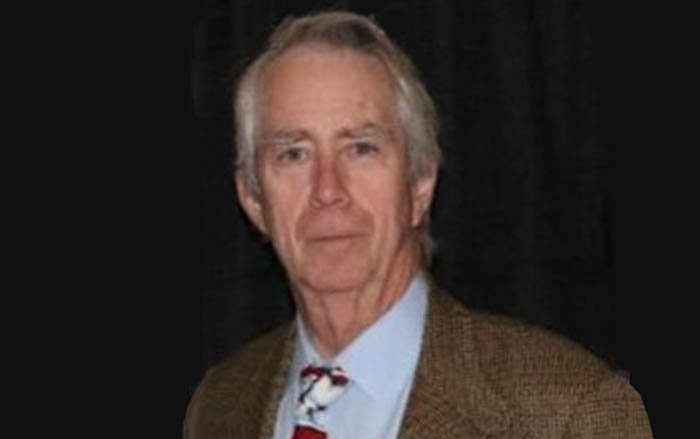Our dedication to Racial Equality and Social Justice (RESJ) spans decades. Learn more about our RESJ Initiative
Hugh Ferguson retiring as Program Chair

Our friend and colleague Hugh Ferguson has decided to retire from the administrative role of Program Chair of the Mental Health Counseling Program in SOPC. For many of us, it feels like the ending of an era.
Hugh began teaching at Cambridge College in the Spring of 2008 and became Program Coordinator in the Summer of 2010 when he immediately became immersed in improving and broadening the scope of the program and its accessibility for students. His guiding hand can be seen in almost every pivotal and transformational turning point in SOPC's development over the 11 years of his contribution as Program Chair. Working closely with his faculty colleagues we can recall all that he helped to shape:
- Introduction of the standardized 60 credit program, down from as high as 78 credits, making SOPC a viable competitor among our sister schools
- Introduction and consolidation of a course in Research Design and Methodology to meet licensure requirements, taking the place of the IRP
- Consolidation of Projective Testing and Intelligence/Achievement Testing into a single course, making it licensure compliant while opening up credits for another course for students to take
- Consolidation of the two courses, Career Counseling, and Vocational Analysis and Job Placement into one course, again to open up credits for another course for students to take
- Consolidation of Adolescent and Child Psychopathology with Psychopathology to make it more licensure compliant
- Reconfiguration of Puerto Rico's MFT program into a Massachusetts-compliant 60 credit LMHC program
- Recraft of California's 60 credit MFT program to help launch it as a license compliant program
- Re-connection efforts with our vast alum body of students who graduated with 36 credits, to inform them, in 2015, of licensing board's introduction of a deadline to enrolling in a CAGS or Certificates as pathways to licensure
- Reconfiguration of SOPC programs to meet new 2015 license requirements
- Creation, with PC colleagues, of a 66 credit MH and School Counseling program which was approved by the licensing board
Hugh has served SOPC in so many capacities, contributing his expertise and experience and providing his thoughtful guidance in matters monumental and minuscule. He would regularly see the broadest context of every concern, but no detail was too small to follow through. It is easy to forget how long his tenure has been. He assisted in the transition, hiring, and training of three academic advisors and helped in the development of the office and role of the Assistant Dean of Field Experience. He has been with us through two NEASC visits. Along with the present SOPC team he worked with the following coordinators and chairs, some of who he helped hire: Joseph Huff, Leroy Kelly, Paul Deschenes, Paul Gerson, Colleen Goode, Stephen Merther, Richard Chester, Frank McNamara, Robin Worthington Johnson, Vita Golub, Elena Cherepanov, Kate King, and John Ciervo.
On a personal note, Hugh describes himself somewhat tongue-in-cheek, as "a child of the 60's" who, when his parents told him that he would go to college, he did; but they neglected to tell him to attend class, and he "mostly didn't". After being drafted into the army, serving in Vietnam and Germany, he attended Infantry Officer Candidate School (OCS) and Fort Benning, Georgia, and upon graduating was informed officers had to have a college degree. He attended the University of North Carolina when he was transferred to Fort Bragg, NC. and when the UNC contract expired, it was awarded to Fayetteville State University, a “constituent institution” of UNC and an HBCU. Hugh reports: "Interesting note, I am the only Caucasian on my yearbook page". The army subsequently offered him the opportunity to go to school full time for two semesters and he enrolled at Methodist College in Fayetteville, NC where he graduated in May 1976.
He returned to the Army full time with a bachelor’s degree, having met the minimum requirement. Ten years later, with almost 20 years in the Army, he was assigned to Germany and started to think seriously about his next career. Boston University had the contract for several graduate programs in Europe, one of which was in Counseling Psychology. He graduated with the Ed.M. in May, retired in September 1989, became licensed as an LMHC, and became a staff clinician with MCC Behavioral Care (the Cigna mental health company) in Tampa Florida. While there, he noted that several clients were requesting a “Christian Counselor.” He describes himself as being "intrigued" and entered a doctoral program in Pastoral Psychology at Life Christian University and Seminary. He completed the degree in 1995. In 1998, he moved to Boston and enrolled at New England School of Law in the evening program, graduated in May 2002, and subsequently completed a Post Graduate Diploma in Family Law at the University of London (extension) in 2009, which was soon after he began his teaching at Cambridge College. While we may feel we know Hugh, it is a treat to share all these facets of his growth and development, which help explain the richness of his contributions as an administrator, colleague, teacher, mentor, and friend.
Despite retiring from his administrative position, Hugh will continue to teach, which will please his colleagues and students. Over these years he has mentored scores of SOPC students, many of whom keep in close touch with him after they graduate. So, while we will miss his administrative leadership, we are so pleased that he will be here longer, inspiring and engaging his students.
Please join us in wishing Hugh well and thanking him for all he has offered. We hope to celebrate him in-person when we return to campus.

